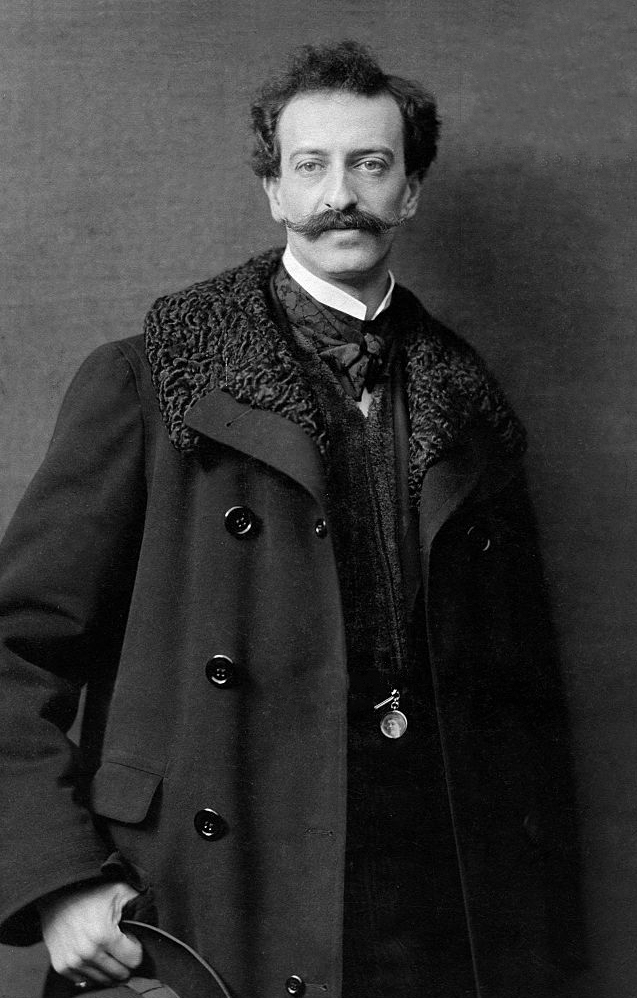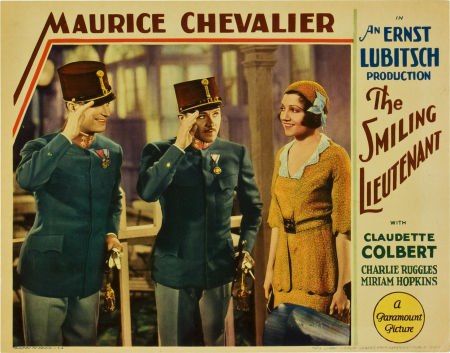Fedora Wesseler & Stefan Schmidl (Hrsg.)
Operetta Research Center
21 June, 2017
Oscar Straus (1870-1954) is one of the leading operetta composers of the first half of the 20th century whose greatest hits include Ein Walzertraum and The Chocolate Soldier. Nevertheless, research on him has been marginal. This was the starting point for an academic initiative by Fedora Wesseler (Paris) and Stefan Schmidl (Vienna) to conduct and stimulate new research and in-depth investigations of Straus’s work.

Oscar Straus, 1907.
The idea was spontaneously born in 2008 during a conference on Victorien Sardou in Paris. It aimed to bring together scholars from different disciplines and countries to pay homage to this cosmopolitan composer. Not intended for a conference, but an anthology of papers, it developed and widened over the years that followed. However, from the very beginning it was outlined to pay special attention to little considered aspects of Straus, including his international career, with an emphasis on his French and Hollywood ventures.

Poster for the Ernst Lubitsch version of “Ein Walzertraum,” the movie “The Smiling Lietenant” (1931).
The result are 14 essays, made available to the general public via the Operetta Research Center Amsterdam. You can download the entire book as a PDF – or read it online – by clicking on the link below. The aim is to make the new information accessible to as many operetta fans worldwide as possible. Click on the link below to read or download the PDF of the full book:
Oscar Straus Beiträge zur Annäherung an einen zu Unrecht Vergessenen
TABLE OF CONTENT
Vorwort ǀ Fedora Wesseler (Paris), Stefan Schmidl (Wien)
Avant-propos ǀ Fedora Wesseler (Paris), Stefan Schmidl (Wien)
Wien-Berlin-Paris-Hollywood-Bad Ischl: Urbane Kontexte 1900-1950
Susana Zapke (Wien)
Von den Nibelungen bis zu Cleopatra: Oscar Straus – ein deutscher Offenbach?
Peter P. Pachl (Berlin)
Oscar Straus, das „Überbrettl“ und Arnold Schönberg
Margareta Saary (Wien)
Burlesk, ideologiekritisch, destruktiv: Die lustigen Nibelungen von Oscar Straus und Fritz Oliven (Rideamus)
Erich Wolfgang Partsch† (Wien)
Oscar Straus – Walzerträume
Fritz Schweiger (Salzburg)
„Vm. bei Oscar Straus. Er spielte mir den tapferen Cassian vor; sehr fein, singspielhaft …“ Oscar Straus und Arthur Schnitzler
Oswald Panagl (Salzburg)
„Grüß mir den Frühling, Nizzaexpress!“ Die „Massary-Operetten“ von Oscar Straus und ihr Verhältnis zur Krise der Operette
Dorothea Renckhoff (Köln)
„Wonderful things“ oder „Nein, so etwas war noch nicht da!“: Die Perlen der Cleopatra
Isabel Grimm-Stadelmann (Salzburg)
Jodel et mélancolie: Une Cléopâtre des années folles
Guy Ducrey (Strasbourg)
Oscar Straus et la France
Danièle Pistone (Paris)
Mariette: L’Histoire, «dans le genre de Joséphine»
Florence Fix (Rouen)
Oscar Straus, der Tonfilmpionier. Die Musik für One Hour with You
Margareta Saary (Wien)
Max Ophuls et Oscar Straus: Une esthétique du vertige
Jérôme Rossi (Nantes)
„Dreht euch, dreht euch, dreht euch im Reigen.“ Zur Entstehungsgeschichte von Oscar Straus’ Filmmusik für Max Ophüls La Ronde
Günter Krenn (Wien)
